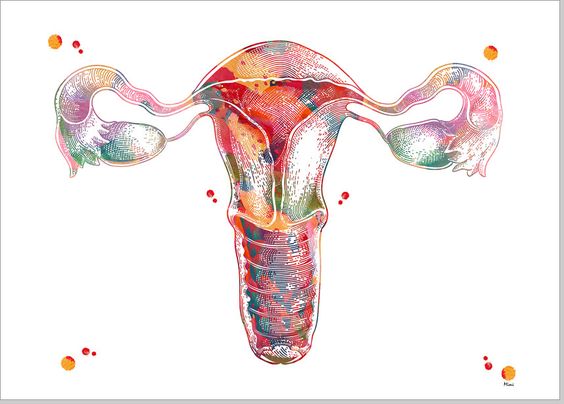A Real Woman’s Story: Bongi, 34, Mom of 3. Welcome to our blog post all about Tubal Ligation, or as we like to call it, “Untying the Knot: Everything you need to know about Tying your Tubes.” And guess what? We’ve got a real woman’s story to share with you! Meet Bongiwe, a fabulous 34-year-old mom of three, budding psychologist, and an absolute music lover—she’s all about Coldplay and Kings of Leon! Now, we at Zoie are passionate about Real Women’s Health, and that’s why we sat down with Bongiwe for a little chat about her experience with getting her tubes tied. Tubal ligation is a fancy term for Tying your Tubes, a permanent, long-term form of contraception, where they block or cut the fallopian tubes so that pregnancy is a no-go. It’s kind of like saying goodbye to the baby-making factory! So, let’s dive into Bongi’s story and her journey with tubal ligation: Zizi: We’ve all been young and reckless, right? But as we grow older, we become wiser (well, most of the time!). Bongi, how have your opinions about contraception changed from your younger days to now, as a mom of three? Bongi: Oh, absolutely! Back in the day, I was a bit clueless about all things related to sexual health and contraceptives. But now, I’m all about doing my research and being informed about what goes into my body. Trust me, my first child came along when I was just eighteen, and that was an interesting experience. Speak to a professional to find out more about contraceptive options here. Zizi: Tubal ligation, quite a mouthful, huh? Can you break it down for us and tell us what led you to choose this path? Bongi: You got that right! Tubal ligation is basically Tying your Tubes, or cutting or blocking those fallopian tubes to keep those little swimmers from meeting the egg. I decided to go for it right after my third child was born via C-section. I had already tried various forms of contraceptives, but they were giving me some nasty side effects—acne, mood swings, and even vaginal dryness (not fun!). So, I said, “Bye-bye hormones, hello tubal ligation!” Plus, it meant no more running to the pharmacy every month for prescriptions—less hassle and admin for me! Read More: Which Contraceptive Is Right For You? Zizi: Making a decision like this is huge! Did you get your partner’s support on this? Bongi: It was ultimately my decision, but I did talk it over with my partner. At first, he was a bit hesitant, but he eventually understood why it made sense for us. You know, in many cases, women are the ones carrying the contraceptive load, and I wanted to take charge of that. It’s essential for couples to have open conversations about these things and find what works best for them. Zizi: Ah, the dreaded misinformation! Do you think that played a role in your partner’s initial hesitation? Bongi: Absolutely! Misinformation can mess things up big time. Also, the realization that we wouldn’t have more kids hit him hard. But we worked through it together, and it brought us even closer. Zizi: So, when did you first realize that Tying your Tubes was a possible option for you? Bongi: My fantastic OBGYN brought it up during my last visit before giving birth. Having a healthcare professional who knows your history and circumstances is crucial. I went for it at 28, which might seem young, but hey, it’s your body, and you gotta do what’s right for you! Zizi: Physically and emotionally prepping for this procedure must have been a journey. Tell us about it! Bongi: Physically, since I had it done right after my C-section, there wasn’t much extra prep needed. Emotionally, though, it was a bit of a rollercoaster. Accepting that you might never have more kids is a lot to process. But I had some heart-to-heart conversations with myself and loved ones to make sure I was making the right choice. Zizi: Okay, let’s dive into the nitty-gritty! How was your experience during the tubal ligation procedure? Bongi: It was a breeze, to be honest! Since I was already under local anesthesia during the C-section, they just added the tubal ligation to the mix. The whole thing took about 15-20 minutes, and thankfully, no complications whatsoever. Sure, the C-section recovery was a bit tough, but that’s par for the course. Zizi: Post-surgery blues, anyone? How did you feel after the procedure? Any moments of doubt? Bongi: Oh yeah, there were definitely moments when I doubted myself, especially when I faced judgment from people who didn’t understand my decision. Cultural taboos can be a pain! But I stood my ground and reminded myself that I had done my research, weighed the pros and cons, and made an informed choice. In the end, I’m grateful for it. Zizi: Addressing stigma head-on, love that! So, how did you handle all that judgement surrounding this topic? Bongi: Knowledge is power, and I am not afraid to bombard people with information! I armed myself with information and answered every question thrown my way. If someone didn’t get it, I’d explain it again (and again if needed). Education is key, and if sharing my experience can help even one person, it’s worth it. Zizi: High five to that! Now, let’s talk about the fun stuff! Has this procedure affected your sexual health or libido? Bongi: Nope, not one bit! My mojo is still intact and doing just fine. Tubal ligation hasn’t put a damper on my love life! Zizi: That’s what we like to hear! Alright, what advice would you give to any woman considering having their tubes tied? Bongi: Take your time, girl! Don’t rush into it. Do your research, chat with your partner, and make sure it’s the right choice for you. It’s a big decision, but when you’re sure, it’s the easiest form of contraception you’ll ever have! Zizi: Perfect advice! And for all our curious








